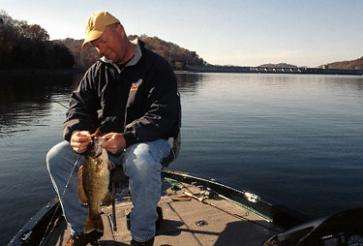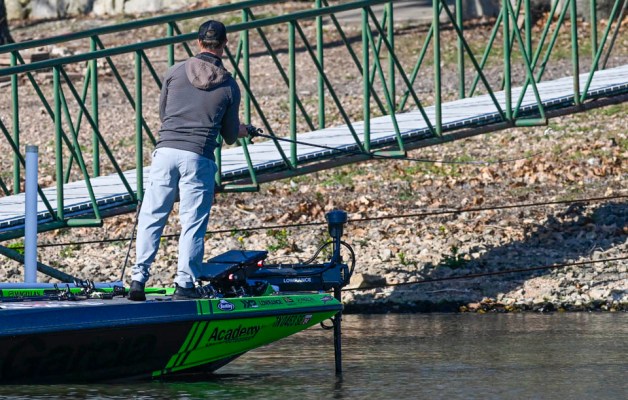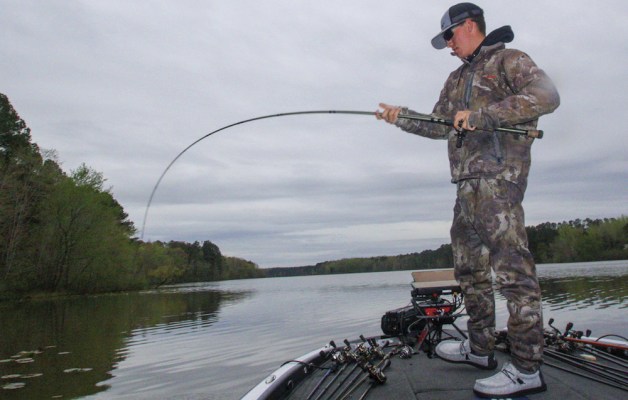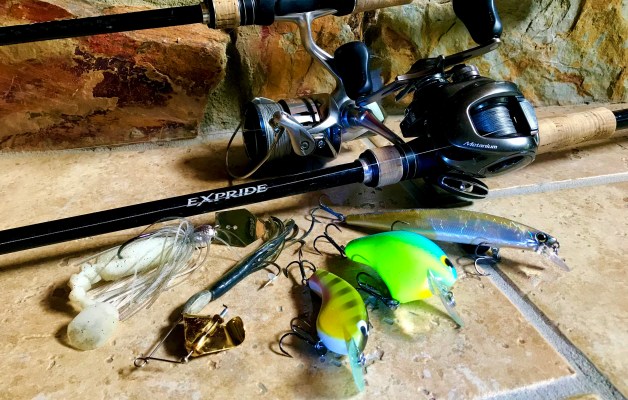
I get to meet a lot of fishermen in my work, and I love talking with them. Fishermen are the salt of the earth and some of the best people you could ever meet.
One of the things I love about bass fishermen is that we’re always trying to learn more about the sport we love — a new technique, a new lure, a new way to sharpen hooks, whatever.
Unfortunately, far too many of us overlook one of our best sources of information, our state fisheries biologists. In Tennessee, where I live, the Tennessee Wildlife Resources Agency not only does a fantastic job of managing our fisheries, but they’re also great sources of information on anything to do with fishing.
I’d recommend that anyone interested in catching more bass spend some time cultivating a relationship with your local fisheries biologist. Give him or her a call or stop by the office to introduce yourself. It’s a relationship worth developing, and it will help you better understand the fish you’re chasing and the way our tax dollars are used to support the resource.
Another great resource is the local library. If you fish an impoundment, you might be surprised at the kind of information you can find at the local library. Plans for the inundation or even topographical maps of the land before the lake was filled may be in the records room. We all know how valuable that can be.
If you’re reading this, you’ve not only shown that you have access to the internet, but that you’re interested in learning more about bass fishing. The World Wide Web isn’t called the information superhighway for nothing. Tens of thousands of avid smallmouth anglers get online every day and exchange information on how they catch their favorite fish. The only problem is that there’s not enough time in the day to find it all, much less read it. Target a few reliable sources and add them to your favorites list so you can easily go back to them day after day … or at least week after week.
Of course, the usual sources of information that most fishermen rely on can be good, too. Tackle shops and guides both collect information, but you need to be careful in processing it. The tackle shop is apt to push you toward something that’s not selling in an effort to get it off the shelves while the guide might be pretty closed-mouthed since you’re not paying his fee.
If I’m headed for unfamiliar waters, I’ll use all these resources to give me the greatest possible chance for success. I start with a call to the local biologists so I can learn about the available forage on the water, the results of any electroshocking efforts and the overall health and status of the fishery. Have the bass spawned yet? Are they in their summertime patterns? What depth do most of the fish seem to be holding in? I’ll also call the lake authority to get the lake level and generation schedule if there’s a hydroelectric dam.
I try to buy the best map I can find and pour over it for a few hours before heading out. Internet research is helpful, too, as are old articles in magazines like Bassmaster and BASS Times. And don’t forget the internet for up-to-the-minute information and advice.
If I have time, I’ll stop by a local tackle shop and spend a few dollars as I ask the clerk a few questions about the depth of the bass that are being caught and what types of baits seem to be producing. If there’s a guide around, I might take a peek at what he’s buying for his clients to use.
The only way we can really get better is to keep studying. I think that’s why it’s so ironic that skipping school has always been called “playing hooky.”
Most of the really good bass fishermen I know are excellent students.
Until next time, if you have any questions or comments, I’d love to hear from you. Please e-mail me atStephen@thesmallmouthguru.com.





